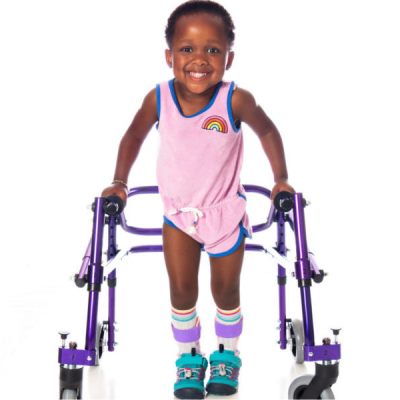Usted está aquí
Duke EAP Now Includes Unrelated Cord Blood
 We have explained before that Duke University has an Expanded Access Program (EAP) which enables compassionate treatment of children who do not qualify for their cord blood clinical trials1,2. Starting in 2017 through 2022, this program treated children with a wide variety of brain injuries and neurological disorders. From time to time, the criteria of the EAP clinical trial NCT03327467 have been amended. One change was to expand the treatment from only using the child’s own (autologous) cord blood to also include cord blood from a sibling. Another change was to expand the ages of eligible patients up to age 25. The most notable change was the removal of autism as a qualifying diagnosis at the end of 2022, but the EAP continued to treat all the other eligible diagnoses2. Recently, in June 2024 the EAP was modified again to allow children with cerebral palsy to be treated with unrelated (allogeneic) cord blood from the Duke public bank, provided a unit can be found in the bank which is large enough and has a close enough HLA match.
We have explained before that Duke University has an Expanded Access Program (EAP) which enables compassionate treatment of children who do not qualify for their cord blood clinical trials1,2. Starting in 2017 through 2022, this program treated children with a wide variety of brain injuries and neurological disorders. From time to time, the criteria of the EAP clinical trial NCT03327467 have been amended. One change was to expand the treatment from only using the child’s own (autologous) cord blood to also include cord blood from a sibling. Another change was to expand the ages of eligible patients up to age 25. The most notable change was the removal of autism as a qualifying diagnosis at the end of 2022, but the EAP continued to treat all the other eligible diagnoses2. Recently, in June 2024 the EAP was modified again to allow children with cerebral palsy to be treated with unrelated (allogeneic) cord blood from the Duke public bank, provided a unit can be found in the bank which is large enough and has a close enough HLA match.
Duke already has a waiting list of thousands of families that have made inquiries about the EAP. They are working through the process of notifying each family which has a child with a qualifying diagnosis but which did not have a cord blood unit to bring to the program. Now those families are eligible to be treated with a donated cord blood unit. Hence, Duke expects to be flooded with prospective patients without any announcement of this change. Nonetheless, the cord blood community should be aware of this new treatment option, in case there are families that have been steered away from even making an inquiry at Duke, but which are now eligible to get on the waiting list.
The reason this change was made now is to align the EAP with a phase 3, multicenter, clinical trial sponsored by Cryo-Cell International that will be launched in 2024. The phase 3 trial will study the treatment of young children that have cerebral palsy with allogeneic, unrelated, publicly banked cord blood. Cryo-Cell is currently working through the final FDA approvals for this phase 3 trial. Duke will be one of the trial locations, and hence the Duke EAP was modified to provide a comparable compassionate treatment for children with cerebral palsy that do not qualify for the clinical trial.
Those patients that are approved to receive unrelated cord blood under the EAP will not be charged for the cord blood unit from the Duke public bank, their families will only need to cover the usual fee for treatment at the hospital.
References
- Verter F. Parent’s Guide to Duke’s Research and Expanded Access Program of Cord Blood Therapies for Neurodevelopmental Disorders. Parent's Guide to Cord Blood Foundation Newsletter Published 2021-11
- Verter F. Duke Removes Autism from Cord Blood Expanded Access. Parent's Guide to Cord Blood Foundation Newsletter Published 2023-06


